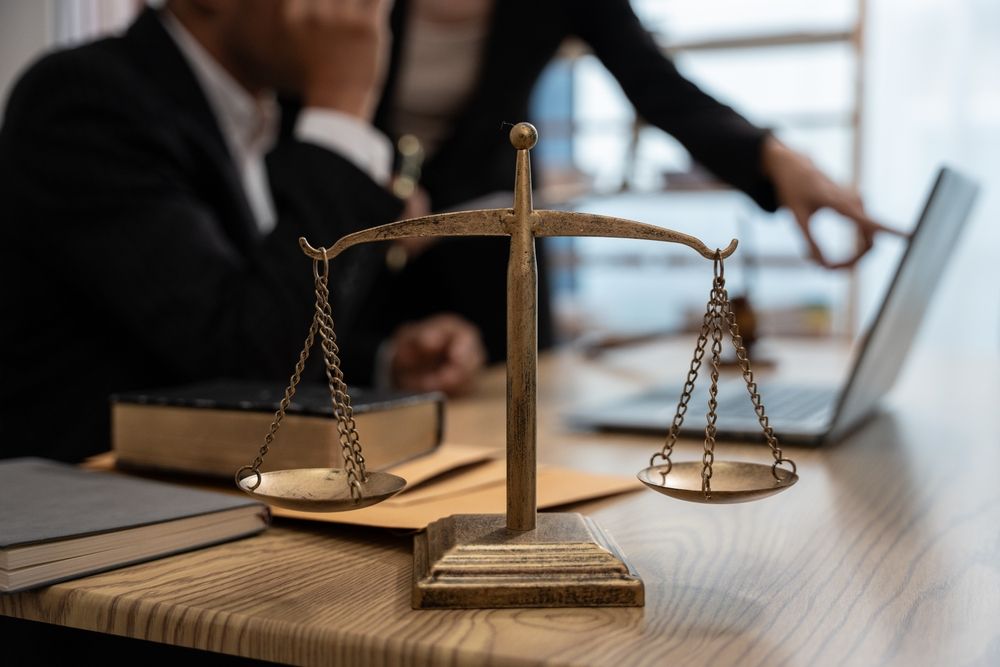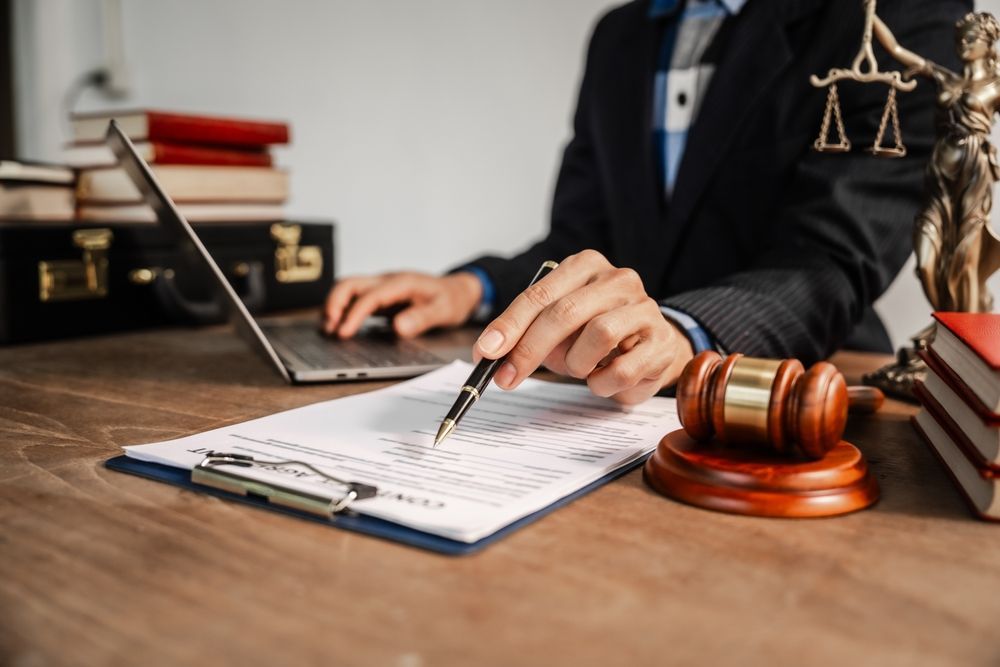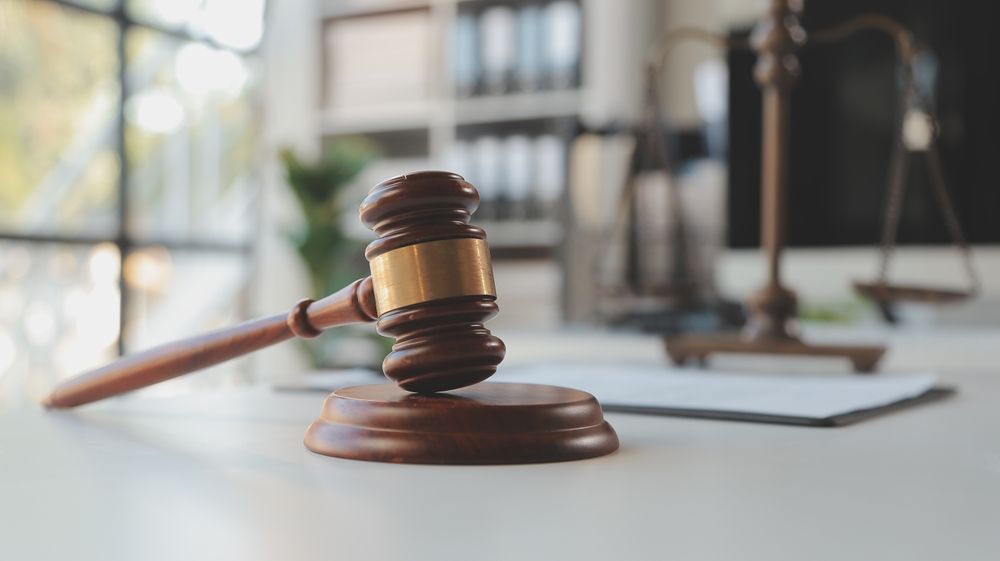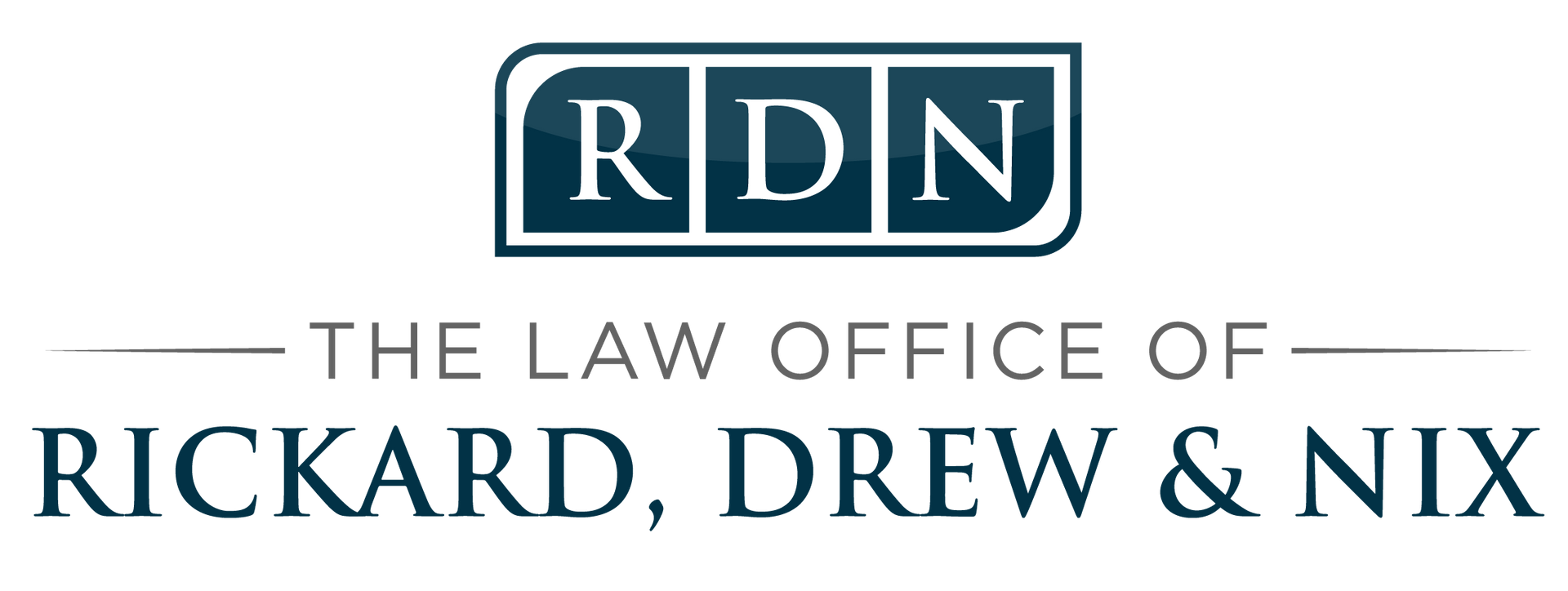Protect Yourself Legally After a Car Accident in Atlanta
Car accidents are never a fun time, even if you aren't injured. The headaches that follow include a car that can't be driven, insurance paperwork, and the whole bureaucratic drama that ensues. Lawsuits often come in the aftermath, too. For your own protection, hiring legal counsel is always the wisest next move. They've been a help to hundreds of car crash victims like you and know exactly how to advise you. Even though you may be an optimist who sees the good in any situation, this is one time you should exercise caution and prepare.
When involved in a car accident in Atlanta, every minute counts to protect your rights and safety. Whether the accident involves a motorcycle crash, a multi-vehicle collision, or a truck accident, understanding the immediate actions to take during car accidents is crucial for preserving evidence, safeguarding your health, and securing future compensation. The aftermath of an accident can be overwhelming, as pain and suffering, medical expenses, and the stress of a potential lawsuit add to an already dire situation.
This article outlines a structured six-step approach that includes securing personal safety, involving law enforcement, collecting vital accident information, engaging with medical and insurance processes, understanding your legal rights, and seeking expert legal guidance. Each section provides detailed, step-by-step instructions to address common challenges encountered after an Atlanta auto accident, including issues such as contributing negligence, disputed fault, and the complications of personal injury law. With actionable advice, examples from past cases, and reference to peer-reviewed studies in injury recovery and accident claim settlement, the guide serves as an essential tool for anyone in need of an accident lawyer, especially when handling car accidents.
By following these steps carefully, you preserve your immediate safety and lay a strong foundation for possible legal claims against reckless driving, negligent behavior, or even hit-and-run incidents. This comprehensive guide ultimately empowers accident victims to handle accident claims while reducing the risk of losing critical evidence for future legal proceedings.
Secure Personal Safety and Seek Immediate Medical Help
Immediately after a car accident, the first priority is to secure personal safety and seek immediate medical help. Victims should quickly assess the situation, check themselves and others for injuries, and call emergency services if necessary. Prompt medical evaluation is critical because injuries such as soft tissue damage, spinal cord injuries, or concussions might not be immediately apparent. Additionally, maintaining composure helps in recording important details that could later support a wrongful death claim, accident lawsuit, or settlement negotiation.
Assess Personal Injuries and Request Emergency Assistance
The initial step after an accident is to assess personal injuries and request emergency assistance. Even if you feel fine, hidden injuries could emerge later, particularly in high-impact events like an Atlanta motorcycle accident or a multi-vehicle collision involving aggressive driving. It is important to ask bystanders, passengers, or even the other party’s occupants whether they feel any discomfort; this can help identify potential issues that require immediate professional medical evaluation. A detailed examination by first responders can detect injuries related to the neck, back, and internal organs. Additionally, having a complete medical record from the initial emergency response is invaluable during later negotiations with insurance companies or in court. For example, a 2017 study published in The Journal of Emergency Medicine noted that individuals who obtained prompt medical evaluations following vehicular accidents had a 30% higher rate of recovering full compensation for injuries compared to those who delayed treatment. This underscores the significance of not underestimating even minor injuries and requesting medical assistance immediately.
Move to a Safe Area Away From Traffic Hazards
After confirming that medical assistance is coming, victims should move to a safe area away from ongoing traffic hazards. Leaving the scene and positioning oneself away from active highways can prevent secondary accidents, such as another collision due to distracted or reckless driving. In urban areas like Atlanta, where traffic congestion is common, repositioning plays a crucial role in avoiding further injuries or potential complications. If moving a vehicle is possible without incurring additional risk, relocating to the side of the road or a designated safe space minimizes exposure to hazards like oncoming traffic or debris. This action also provides a calmer environment, allowing accident victims to document what happened and prepare for the arrival of law enforcement. Remember, minimizing stress and exposure post-accident not only protects against additional injury but also contributes to better long-term outcomes both physically and psychologically. Careful attention to this step supports accurate documentation of the scene and demonstrates proactive behavior, which can be beneficial when proving negligence or verifying an accident claim later on.
Involve Law Enforcement and Document the Incident
Involving law enforcement immediately after an accident is vital to create an official record of the incident. Law enforcement officers can secure the scene, direct traffic, and document vehicle positions, damages, and witness statements. This documentation becomes a cornerstone in accident claims, insurance disputes, and potentially, a trial where fault and negligence are contested.
Contact Local Authorities Promptly
Victims must contact local authorities promptly after the accident. The moment an officer arrives on the scene, they perform a thorough investigation, which includes taking photographs, recording the exact location, and noting other critical details such as weather conditions, the state of the road, and traffic patterns. This immediate response not only helps stabilize the scene but also forms an unbiased record of the incident. For instance, a study by the American Journal of Forensic Medicine found that police reports significantly bolster a victim’s position during wrongful death claims and insurance settlements, primarily because the documentation provides third-party verification of the incident. Additionally, contacting law enforcement creates a legal timeline that is often essential in establishing adherence to the statute of limitations, a critical factor in Atlanta car accident lawsuits. Therefore, by involving local authorities swiftly, accident victims guarantee that vital evidence is documented accurately.
Record Details From the Police Report and Officer Observations
After the police have responded, it is crucial to inquire about the details and retain a copy of the incident report. This documentation should include key observations made by the officers, such as the direction of impact, potential reckless driving behaviors (e.g., speeding or distracted driving), and environmental factors that contributed to the collision, like poor visibility or inclement weather. The information provided in the officer’s report can be critical when calculating claims for damages, stress, pain and suffering, or punitive damages. Often, key details like lane positions and speed limits will be highlighted, aiding legal professionals in determining contributory negligence or comparative fault. Witness statements collected by the police further support the accuracy of the accident narrative. This precise record forms a vital part of the medical record for subsequent insurance claims or litigation, bridging the gap between immediate accident response and long-term legal recovery.
Collect and Safeguard Crucial Accident Information
Collecting and safeguarding crucial accident information is an essential step to support any future legal claims or compensation. This detailed information includes contact details, insurance information, photographic evidence, and witness accounts. Accurately preserving these details means that every aspect of the incident is documented, which is critical for law enforcement, insurance claims, and any subsequent trial or settlement negotiations.
Exchange Contact and Insurance Information With Other Drivers
Immediately following an accident, drivers should exchange contact and insurance information. This exchange should include full names, phone numbers, insurance policy numbers, and vehicle registration details. In situations involving a motorcycle crash or a multi-vehicle accident, it’s not uncommon for parties to be emotionally charged. Therefore, maintaining a professional demeanor and being precise in the information collected minimizes the risk of disputes later on. Detailed records guarantee that your evidence remains uncontested if the other party attempts to underreport damages or contest liability. Additionally, having accurate information is essential when filing a claim with your insurance provider, which is often a precursor to a settlement or a lawsuit. Effective communication at the scene assures that both parties uphold their duty of care, ultimately reinforcing the strength of your accident record. In legal terms, these details form part of the documentary evidence required to establish reliance on the information provided by the involved parties during post-accident investigations.
Capture Photographic Evidence of the Scene and Vehicle Damage
Taking photographs immediately after the accident is one of the most effective ways to safeguard your case. Photographic evidence should cover the overall scene, vehicle damage from multiple angles, road conditions, skid marks, and any visible injuries such as bruising or bleeding. High-resolution images captured by smartphones or cameras provide a time-stamped record that can be submitted to law enforcement, insurance companies, and attorneys. This visual documentation strengthens claims by corroborating witness testimony and police documents. For example, in numerous successful car accident injury claims, images of vehicle deformation and road hazards have proven critical in affirming the extent of damage and reconstructing the chain of events. It’s recommended to take multiple photos and, if possible, even video footage to capture moving details such as traffic flow after the incident. This method helps eliminate discrepancies during claim evaluations and supports the argument for compensation based on the extent of damage and potential long-term effects such as chronic pain or medical disabilities.
Obtain Witness Contact Details for Further Testimony
Witnesses present at the accident scene can offer unbiased accounts that are invaluable in legal disputes. Collecting detailed contact information from any witnesses, including their full names, phone numbers, and email addresses, provides a third-party perspective on the incident. In many cases, witness testimonies help reinforce your version of events, especially when police reports or insurance assessments are ambiguous. Moreover, witness statements add corroborative strength to claims involving complicated accident dynamics, such as hit-and-run scenarios or contested liability in dispersed multi-vehicle accidents. Witnesses who remained calm under pressure can remember specific details like the speed of the vehicles, positions before the collision, and any erratic driver behavior. This information is particularly important when evaluating elements like contributory negligence or wrongful death claims. Having reliable witness evidence can also be instrumental during negotiations with insurance companies, as it bolsters the credibility of your account, making it harder for the opposing party to dismiss your claim.
Engage With Medical and Insurance Processes
After confirming that the accident scene is thoroughly documented, victim recovery becomes a priority through medical evaluation and prompt communication with your insurance provider. Engaging with these processes as soon as possible is vital to secure compensation for injuries, damages, and therapy costs related to pain and suffering, bleeding, and other physical impairments. Early and comprehensive medical assessments contribute to a detailed medical record, which plays a significant role in substantiating your case when seeking settlement or filing a lawsuit for car accident injuries.
Pursue a Thorough Medical Evaluation for Potential Injuries
It is critical to pursue a thorough medical evaluation immediately after the accident. Even if the injuries appear minor, stress and shock can mask serious conditions that worsen over time. A detailed medical examination from an accredited facility should cover a range of potential traumas, from soft tissue injuries to fractures, and even internal bleeding. A documented evaluation not only provides clarity on your physical condition but also becomes part of a vital record required for legal proceedings and insurance claims. Several peer-reviewed studies, such as one published in the Journal of Trauma and Acute Care Surgery (2018), have noted that early medical intervention following an auto accident reduces long-term complications by up to 25%. This evaluation can include blood tests, X-rays, and MRI scans, which help diagnose unseen injuries like spinal cord damage or brain trauma that might be associated with symptoms that develop later. Furthermore, the timely documentation of your injuries, including therapy recommendations and prescriptions for pain medication, reinforces claims for compensation associated with medical expenses, lost wages, and future rehabilitation costs.
Report the Accident to Your Insurance Provider Without Delay
Timely reporting of the accident to your insurance provider is critical in preserving your rights and initiating a formal claim. Most policies require notification of a claim within a specific timeframe after the incident, and any delay can jeopardize your compensation. When contacting your insurer, provide them with all the documented evidence, including police reports, photographs, witness statements, and medical records. Insurance companies rely on this comprehensive evidence to assess liability and determine the appropriate settlement for damages, including medical expenses, property damage, and lost income. Detailed records not only support a strong claim but also demonstrate that you have taken all the necessary steps to secure your financial and physical well-being after the accident. In cases of disputes or resistance from the insurer, the documented evidence supports your argument when negotiating or eventually pursuing legal action. Moreover, prompt reporting minimizes the risk of your claim being denied due to statutory deadlines or allegations that you failed to mitigate damages. This proactive approach is essential in maintaining the integrity of both your legal case and your recovery plan.
Understand Your Legal Rights After an Atlanta Car Accident
After addressing immediate medical needs and insurance notifications, understanding your legal rights following an Atlanta car accident is paramount for securing future compensation. Familiarity with local accident and injury regulations and the relevant doctrines like comparative negligence means that you are well-equipped to challenge any unfair settlement offers. Whether the claim involves soft tissue injuries, wrongful death, or punitive damages, knowing your rights helps steer the legal strategy. Local laws in Atlanta and the broader state of Georgia have specific rules regarding statute of limitations, contributory negligence, and duty of care, which directly affect your case. This knowledge can influence decisions related to engaging with an attorney, gathering further evidence, and preparing for trial if necessary.
Learn About Local Accident and Injury Regulations
Recognizing the specific accident and injury regulations in Atlanta is critical so you adhere to local legal frameworks when pursuing compensation. Laws in Georgia, for example, may differ significantly from those in other states, especially regarding concepts like contributory negligence. In many Georgia car accident lawsuits, even a minor degree of fault could potentially reduce the amount of compensation available. Detailed research into state-specific policies, supported by studies such as one published by the Georgia State University Law Review, demonstrates that understanding regional statutes can result in a 20% higher success rate in compensation recovery. Regulations also govern how evidence must be preserved and presented in court, influencing the case’s outcome. When you fully grasp these regulations, you are better prepared not only to file a claim but also to negotiate effectively with insurance companies and opposing counsel. Familiarity with criteria such as proper documentation of medical treatments, police reporting standards, and witness testimony requirements safeguards your case from procedural dismissal and reinforces your legal entitlement to safe, fair compensation.
Recognize the Importance of Preserving Evidence for Legal Claims
Preserving evidence after a car accident is as crucial as obtaining a medical evaluation and reporting the incident. Evidence such as photographs, detailed police reports, medical records, and even video footage from nearby surveillance cameras can substantiate your claim against negligent drivers or insurance companies. In Atlanta, where traffic collisions often involve scenarios like hit-and-run incidents or distracted driving, robust evidence supports your case in court and improves the likelihood of securing a favorable verdict. This documentation not only validates the extent of physical injuries and property damage but also is instrumental when calculating compensation for pain and suffering, lost wages, and future medical expenses. Legal experts often advise accident victims to compile a comprehensive dossier that includes every piece of information from the accident scene, as missing evidence can severely hinder the claim process. Additionally, the preservation of evidence supports your legal doctrine by demonstrating an unbroken chain of custody, effectively protecting against claims of evidence tampering or inconsistency. Ultimately, proper evidence collection enhances the credibility of your case and builds a strong foundation for a wrongful death claim or accident settlement.
Outline Steps to Secure Future Compensation for Damages
Beyond immediate safety and evidence preservation, it is essential to outline clear steps to secure future compensation for damages. This involves consulting with legal professionals, understanding the full scope of recoverable expenses, and preparing for negotiations with insurance adjusters. Future compensation may cover not only past medical bills but also projected therapy costs, physical rehabilitation, and even long-term impacts on your quality of life. For example, if your accident resulted in chronic pain or necessitated ongoing physical therapy, these future costs must be factored into the final settlement. Additionally, a comprehensive claim might include non-economic damages such as pain and suffering, loss of consortium, and emotional distress, which have been documented in numerous studies to significantly impact an injury lawsuit’s outcome. Establishing a clear, documented timeline from the accident to subsequent medical evaluations illuminates every stage of your recovery process, forming a critical backbone during trial or settlement discussions. Every strategy adopted at this stage, whether it is filing a timely claim, keeping detailed financial records, or seeking expert advice, plays a significant role in receiving the full and fair compensation to which you are entitled.
Seek Expert Legal Guidance for Protecting Your Rights
Following an accident, engaging expert legal guidance is instrumental in protecting your rights and receiving adequate compensation for your injuries and damages. Legal professionals experienced in Atlanta car accident cases understand the intricacies of state and federal personal injury law, including aspects such as negligent driving, comparative negligence, and statutory limitations. An attorney specializing in personal injury can guide you through recovery processes—from gathering evidence and documenting the accident to negotiating with insurance companies and representing you in court. Expertise in cases involving punitive damages or wrongful death claims, for example, can significantly enhance your potential settlement, as an attorney can leverage prior case studies and statistical analysis to argue for higher compensation. Professional legal guidance makes working through the procedures of accident claims more manageable and increases the likelihood of a favorable outcome, particularly when the accident involves multiple vehicles, disputed fault, or ambiguous police reports.
Explore Options for Legal Consultation With Experienced Professionals
Consulting with experienced legal professionals is critical following any car accident. In Atlanta, reputable law firms often offer free consultations to assess the strength of your case. A seasoned attorney will review your documented evidence, medical reports, and police statements to determine the viability of your claim. This initial consultation is also an opportunity to discuss fee structures, including contingency arrangements where fees are only collected if compensation is secured. Additionally, a professional attorney will meet all deadlines related to the statute of limitations and insurance reporting, significantly reducing the risk of your claim being dismissed on procedural grounds. Expert legal counsel enhances your negotiating power with insurance companies and provides strategic advice tailored to your specific circumstances, which may include unique factors like potential punitive damages or the need for specialized expert witnesses to testify on your behalf.
Review Case Studies That Reflect Similar Accident Scenarios
Reviewing case studies of similar accident scenarios helps build a clearer understanding of how similar claims were successfully resolved. Many personal injury law firms maintain an archive of past cases involving issues such as motorcycle crashes, truck accidents, or distracted driving incidents. These case studies reveal patterns in compensation amounts, settlement negotiation strategies, and courtroom tactics that can be applied to your own situation. For example, a detailed review of a case involving a severe Atlanta auto accident might show that prompt medical evaluations and thorough evidence collection led to a 25% increase in overall compensation. These real-world examples underscore the benefit of rigorous legal preparation and encourage victims to maintain high standards of documentation. Furthermore, understanding the outcomes of previous cases provides strategic insight into potential defenses and counterclaims by opposing insurance companies. Such reviews help you set realistic expectations and encourage sustained engagement with your legal process. Ultimately, leveraging historical case data improves your negotiation stance and can serve as a persuasive argument in a settlement or trial.
Consider a Free Consultation to Evaluate Your Situation
Many reputable law firms in Atlanta offer a free initial consultation to evaluate your accident case. This consultation provides a risk-free opportunity to discuss all pertinent details, including medical records, police reports, and any photographic evidence that was collected at the scene. During this consultation, legal experts review your case to ascertain potential liability, the likelihood of success in court, and a realistic estimate of compensation for pain and suffering, lost wages, and future expenses. It is also an ideal time to explore whether the case qualifies for aggressive litigation, particularly in scenarios involving reckless driving or hit-and-run incidents. A free consultation eliminates the financial barrier to obtaining expert advice, allowing you to clearly understand your rights and the best course of action. Moreover, it sets the stage for more comprehensive legal representation if you decide to move forward, so you have an experienced advocate in your corner as you pursue a wrongful death claim or dispute any punitive damages. Taking advantage of this consultation can be the first decisive step towards securing full and equitable relief for your injuries.
Conclusion
In the aftermath of a car accident in Atlanta, it is essential to take swift and deliberate actions to protect your physical well-being and legal rights. By securing personal safety, involving law enforcement immediately, and meticulously documenting every detail of the incident, you lay a solid foundation for any legal claim or insurance negotiation. Engaging in comprehensive medical evaluations and reporting promptly to your insurance provider further strengthens your claim for compensation, especially regarding dealing with pain and suffering, lost wages, and future rehabilitation costs. Finally, understanding your legal rights and consulting with experienced personal injury lawyers empowers you to take the necessary legal actions to safeguard your interests and secure maximum compensation. The Law Office of Rickard, Drew & Nix stands ready to provide rigorous legal representation and support as you encounter these challenging situations.
Frequently Asked Questions
Q: What should I do immediately after a car accident in Atlanta?
A: Immediately secure your safety by checking for injuries and moving to a safe area away from traffic. Contact emergency services, document the scene, exchange insurance information, and notify law enforcement to get a thorough police report. These steps are crucial in forming the foundation of an accident claim and future legal actions.
Q: Why is it important to preserve evidence after an accident?
A: Preserving evidence like photographs, witness contact details, and police reports provides critical support for your case. This documentation not only helps in accurately reconstructing the accident but also plays a key role in negotiations or litigation involving claims for pain and suffering, property damage, and medical expenses.
Q: How does immediate medical evaluation affect my legal claim?
A: Prompt medical evaluations mean any injuries are documented, even those not immediately apparent. This comprehensive medical record is integral for substantiating claims for lost wages, physical therapy, and pain and suffering, and it strengthens the credibility of your case in court.
Q: What role does law enforcement play following a car accident?
A: Law enforcement provides an unbiased report of the accident, documenting critical details such as vehicle damage, road conditions, and witness statements. This evidence is essential for insurance claims, legal settlements, and negligent behavior investigation.
Q: When should I seek legal advice after an Atlanta car accident?
A: It is recommended to consult with a personal injury attorney as soon as possible after the accident. A free consultation can help evaluate your case, secure your rights, and guide you through legal procedures, ultimately guaranteeing that you receive fair compensation for any injuries or damages sustained.

Attorney Jessica Nix, Managing Partner
Jessica Nix is Managing Partner and a Personal Injury Attorney at the Law Office of Rickard, Drew & Nix in Atlanta, with more than 10 years of experience representing injury victims in courts across Metro Atlanta. She graduated cum laude from the University of Georgia School of Law, where she served as an editor of the Journal of Intellectual Property Law. Jessica is admitted to the State Bar of Georgia, is a member of the Georgia Trial Lawyers Association, and was named a Georgia Super Lawyers Rising Star for Personal Injury from 2017 to 2019. To speak with the Law Office of Rickard, Drew & Nix, schedule a free consultation today.



